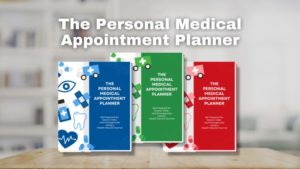When it comes to taking care of yourself, there are many different ways to do it. Here are six categories of self care that can help parents of special needs families.
Caregiver is a serious job title. We ignore our own needs and over time suffer the consequences of declining physical and mental health. Read this post on the benefits of self care for more information.
We all know that self-care is important. But what exactly is it? And what are the different types of self-care? If you feel like you already have a care plan, does it cover all the bases? If you’re not sure, don’t worry, you’re about to find out! So without further ado…
There are six main categories of self-care: physical, mental, emotional, practical, spiritual, and intellectual. Let’s take a closer look at each one.
Physical Self Care
This one is all about taking care of your body. This includes things like eating healthy foods, exercising regularly, getting enough sleep, and staying hydrated. This list could be really long but don’t think about it like that. You don’t have to do ALL THE THINGS. Just pick out the ones that resonate with you.
It also means making those sometimes dreaded but all important routine and non-routine appointments. So when was your last physical exam? Dental appointment? Uhuh. Just as I thought!
What about health problems that have popped up but you haven’t made time to even call to get an appointment? Yes, It all counts as physical self care and is super important!
Mental self-care
This is all about taking care of your mind and your thoughts about yourself in this world. This self care includes activities like practicing mindfulness, setting aside time for relaxation, and doing things that make you happy. It includes the ability to recognize when you may need extra “time outs” to give yourself space to decompress or if you need to reach out for professional help. Delaying mental health self care can make symptoms of anxiety or depression worse and make day-to-day living more difficult during stressful times.
Emotional self-care
Emotions are closely related to mental self care but are all about taking care of your feelings. This includes things like expressing yourself creatively, spending time with loved ones, and taking time for yourself. Someone with healthy emotions is confident, feels in control, and has strong relationships. Doing activities that make you feel proud, that reach out to others or that contribute to your family or community builds healthy emotions.
Practical Self Care
I call this one – getting S#!t Done! It’s taking care of all the little “life” things that have the potential to cause stress. It’s clearing out the clutter, knowing you have taken care of finances and your bills are paid for the week or cleaning the bathroom so you don’t stress if you have unexpected visitors. If things are organized and set up in systems then the other people you live with won’t continually be asking you to find things they lost or take care of problems that they can take care of themselves. This is my favorite because it’s the easiest for me. I’m a list maker and do-er so it’s something I learned to do first.
Spiritual self-care
This is all about taking care of your spirit. This includes things like practicing meditation or prayer, spending time in nature, journaling, or connecting with a higher power. A spiritual practice can be about your chosen religion but it doesn’t have to be about religion. You are working towards connecting to your inner self with acceptance, compassion, and understanding. Spiritual self-care is important because it helps you find peace and calm in your life.
Intellectual Self Care
Many people feel like when they graduate from school and get started with their career, then they’re done learning. On the contrary, it’s just getting started. To advance to the next level in life, we have to learn, adapt, and at times “pivot!” When caring for someone with a disability, you suddenly become great at research and giving elevator speeches to convince someone they need to help your child in a certain way. Skills we may not have learned well in school, but now you spend hours well into the night reading research papers on Pub-Med. Believe me, we’ve all been there.
But having this new knowledge comes into play when we can advocate for our child to get the care they need. And even better still is when we can help other parents struggling with the same problem and share what we learned. I consider this self care. Having this knowledge gives us confidence that we are doing the best we can for our children.
Each type of self care is important in its own way and can contribute to a person’s overall well-being. It can be helpful to think about all six when trying to come up with a self-care plan that works for you. Try to pick one thing in each category and start them at your own pace.
You can also go to this post on how to start your self care plan.
Making small changes in your routine can have a big impact on how you feel both physically and mentally. And remember – it’s okay to ask for help if you need it!




